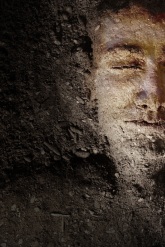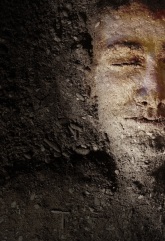 There is an old lawn mower sitting in my garage that is unusable. When the grass begins to grow this summer, I am going to need a mower and the one I do have needs to be fixed. A useless lawn mower does not serve much of a purpose. In fact, a paperweight has more usefulness than it does. The mower simply sits in my garage and gets in the way. For many people, this mower represents their lives. They choose not to serve a purpose, and end up sitting idle, wasting away as the world around them fades. What is mankind’s purpose? How do we live for that purpose?
There is an old lawn mower sitting in my garage that is unusable. When the grass begins to grow this summer, I am going to need a mower and the one I do have needs to be fixed. A useless lawn mower does not serve much of a purpose. In fact, a paperweight has more usefulness than it does. The mower simply sits in my garage and gets in the way. For many people, this mower represents their lives. They choose not to serve a purpose, and end up sitting idle, wasting away as the world around them fades. What is mankind’s purpose? How do we live for that purpose?
The Lord God took the man and placed him in the garden of Eden to work it and watch over it. And the Lord God commanded the man, “You are free to eat from any tree of the garden, but you must not eat from the tree of the knowledge of good and evil, for on the day you eat from it, you will certainly die.”[1]
Why the Garden?
If we notice, God has first created man and only after that creation has placed man in the Garden. There is no mention of the Garden in Genesis one. In Genesis one, though, there is presented an order of creation on the earth.[2]
| Before Day 1 | Creation of Heavens and Earth
The earth was void. The Spirit of God hovered over the surface of the waters. |
| Day 1 | Creation of light and separation of light from darkness |
| Day 2 | God separated waters above from the waters below and called the expanse “Heaven” |
| Day 3 | God separated dry land from the waters covering the earth
Creation of seed-bearing plants according to their kinds |
| Day 4 | Creation of sun, moon and stars to serve as signs of days and seasons |
| Day 5 | Creation of fish, sea creatures and birds according to their kinds |
| Day 6 | Creation of living creatures, livestock, insects and bests of the earth according to their kinds
Creation of humankind in God’s image to rule over God’s creation |
It is only after this creation that God seems to move man to the Garden. A natural reading of the text indicates that the first man, Adam, was the only one specifically created outside of the Garden, only to be moved directly by God into the Garden. I want to beg the question not only as to why God might have done this, but also as to why Moses felt it necessary to include this specifically in the story of Hebrew History.
First of all, God moves man to the Garden only after creating mankind in His own image. There is something that we must realize about God and it is that He is the standard for holiness. God is set apart from all that is. He is the only one who exists eternally and the only one who has ultimate authority and perfect knowledge. Since God created humankind in His own image, His setting humankind apart by moving him to the Garden seems to be a statement of holiness and insinuates a condition of humankind’s existence as an existence of holiness. The first man was set apart and moved to the Garden because He is the image of a God who is set apart; who is holy. So, God’s action, moving the first man into a Garden that was not only created by but also cultivated by God, is a declaration of God’s own holiness. We must remember that the main character of this story is not Adam, but God Himself, thus making the story a revelation of God.
Second, we must remember that Moses exhorts the Israelites as they depart from Egypt. Just as the Israelites depart from Egypt, or shortly after, Moses recounts a history of God creating the first man, then moving that man out of an uncultivated world into the Garden. This seems to be a story indicating that the God of their forefathers was a God who had a purpose greater than mere existence for His people, so much so that He would cultivate a place for them. Just as Adam was brought out of the uncultivated world and into the Garden, so also the Israelites during Moses’ time looked toward a land flowing with milk and honey (the land of Canaan), and so also each of us looks toward the final establishment and the restoration of the earth.
So we should always revere God as holy, seeking ourselves to be holy because God is holy. We should also remember that people have a purpose beyond mere existence and that God is actually cultivating that purpose for us. Ultimately, that purpose will be fully revealed as we enter into eternity with God.
Mankind’s purpose in the Garden
The very first thing we should notice is that God created human kind in His own image. This means that mankind’s primary purpose is to be the image of God. Moses explains some of the implications as He quotes God’s statement regarding the creation of the first people:
“God blessed them, and God said to them, ‘Be fruitful, multiply, fill the earth, and subdue it. Rule the fish of the sea, the birds of the sky, and every creature that crawls on the earth.’”[3]
Each of God’s commands to humankind directly reflects humankind’s reflective purpose:
- The command to be fruitful and multiply was a command for people to fill the earth with God’s image. Since God transcends His own creation (He is holy), God chose to be present in His creation through His people, who were made holy by their being set apart from the rest of creation.
- This means that the Church is the vessel through which God is present within His creation.[4]
- God’s command that people should subdue the earth meant that it was not only their purpose to fill the earth with God’s image, and thus worship to God, but also that people should steward the earth well. This is called representative rule.
- We should always take care of God’s creation and use the resources that we have been given wisely.
The one restriction in the Garden
In commanding the first people not to eat from the Tree of the Knowledge of Good and Evil, God gave the first people freedom to either honor Him or not. God gave the first people a choice to either love Him or not. God gave them a choice to either obey Him or not, and He warned them of the consequences. To rebel against a life-giving God was to choose death.
Because of this, people lost their status as God’s image on the earth. The only way to once again attain that status, the status we were designed to have and indeed the only way that we can live according to our God-given purpose, is through the death and resurrection of Jesus Christ, God’s Son.
Conclusion
- We have a holy calling from God that was placed on each of us at the moment of creation. We are to be holy because God is holy.
- This means that there are some things that the world promotes that we simply cannot be involved in.
- When we live to honor God, God is present in us and through us. God literally reveals Himself in and through our lives.
- We are to be good stewards of God’s creation, ruling over it as representatives of the God who created it and cares for it.
- We cannot fulfill these holy purposes without first trusting in Christ to save us.
[1] Genesis 2:15-17 (HCSB)
[2] Genesis 1
[3] Genesis 1:28 (HCSB)
[4] The reader should understand that “within creation” means something entirely different from “about creation”. God has all knowledge concerning all events. He works and orchestrates events within His creation. He is present even without the aid of mankind. This is what is meant by God’s presence about His creation. God is not, though, bound within His creation. God created nature, but He is not nature.
[5] 1 Corinthians 3:16, 6:19, 2 Timothy 1:14, Romans 8:9, 11
[6] John 15:5
